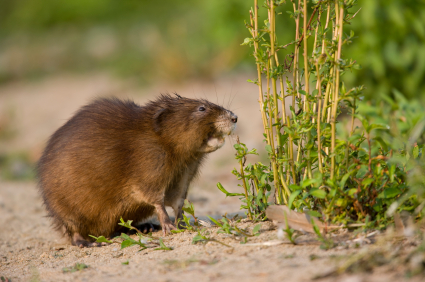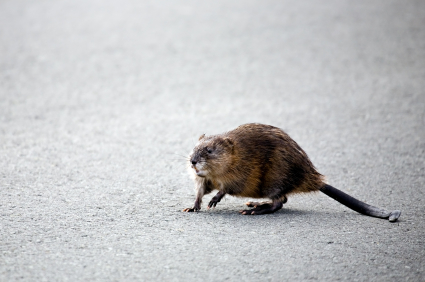How to Identify a Muskrat
Muskrats are semi-aquatic and live near waterways, building their dens along the banks. These rodents are approximately two feet long, with tails that range in length from 8 to 12 inches, and weigh two to four pounds. Their fur is typically dark brown, though it can vary from black to almost white. The pests’ heads are broad and feature small eyes and short, rounded ears. The name muskrat comes from their resemblance to rats and the musky odor produced by their scent glands. Though they are often mistaken for beavers and nutrias, muskrats are smaller than both.

Denning and Feeding Habits
Due to their need for ready access to bodies of water, muskrats are usually found in wetlands, swamps, and coastal areas with abundant vegetation. They frequently travel up to 200 yards from their dens for food, which includes a wide variety of plant life and crops. Muskrats use their sharp front claws to excavate dens by burrowing into the banks of streams. These burrows have chambers that remain dry, as well as ramps to underwater tunnels and hidden ventilation holes at ground-level obscured by vegetation.
Problems Caused by Muskrats
Their denning and feeding habitats are the main causes of conflict between muskrats and humans. They sometimes dig into dams or dikes, weakening the structures and disrupting carefully planned water flow patterns. Large populations are capable of defoliating aquatic vegetation, which reduces habitats for other wildlife and causes ecological problems. They will also eat crops from gardens near their homes. Additionally, muskrats carry the bacterial disease tularemia and are among the few animals that defecate in water, which can cause illness in people who drink from streams. To safely identify and control muskrat infestations, property owners can contact the wildlife professionals at Critter Control.
